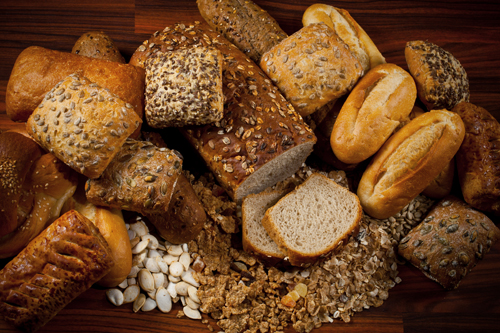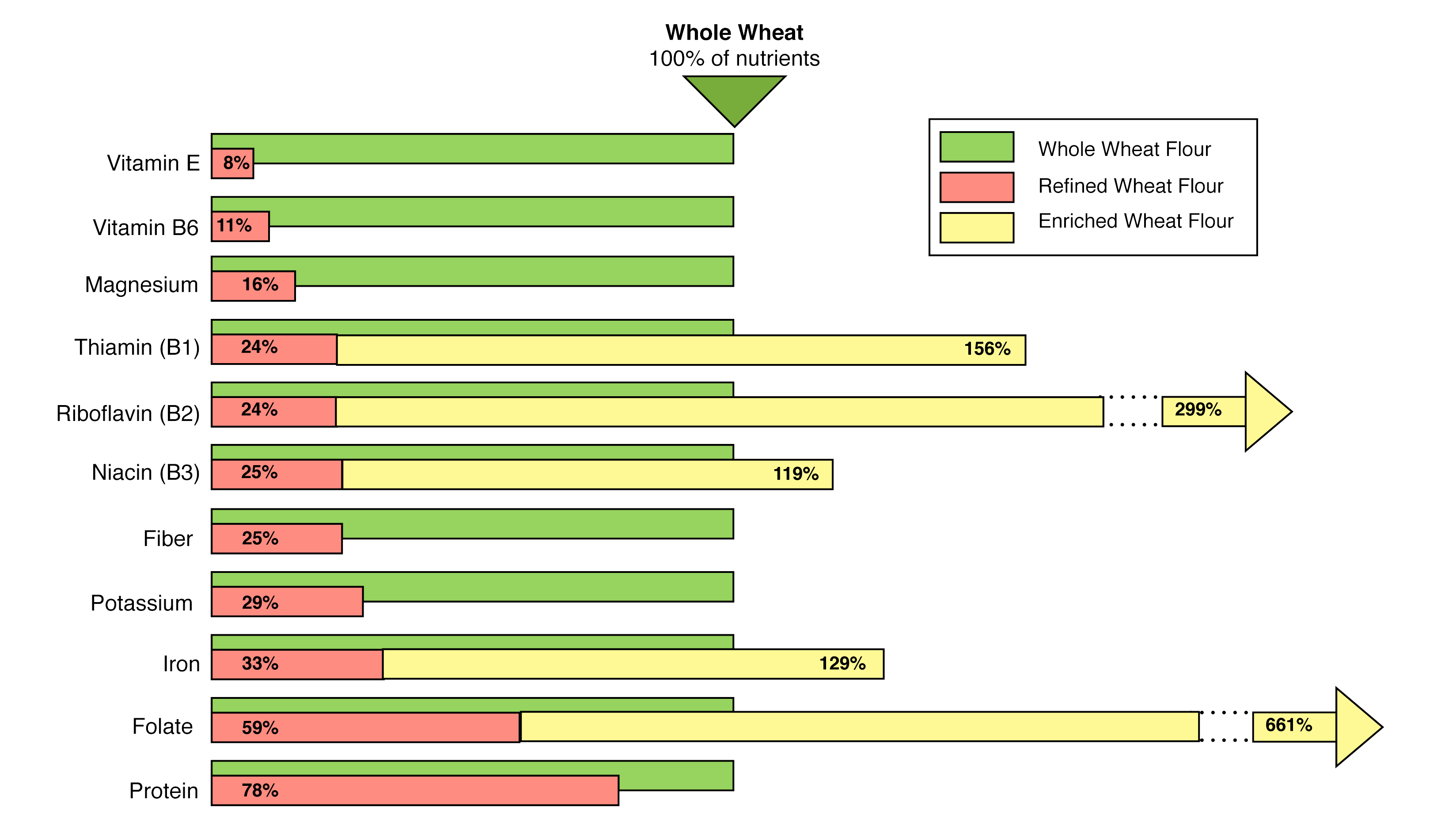Share This
Choosing whole grain bread in place of refined white bread is often one of the first steps on the journey to healthier eating. But if you think this simple swap might not yield tangible results, you’re in for a surprise.
“There IS a measurable difference between whole wheat and white flour products, in every category one wishes to consider,” explains WGC Scientific Advisor Dr. Gary Fulcher. Refining whole wheat flour to make white flour greatly decreases a wide range of nutrients, including fiber, protein, vitamin E, vitamin B6, potassium and magnesium. Below is a closer look at how whole wheat flour differs from refined or enriched wheat flour.
Data from USDA Agricultural Research Service FoodData Central, (2019)
Rabble-rousing headlines claiming that studies find “no differences” between whole grain breads and white breads have been widely critiqued in the academic community, and are at sharp odds with the consensus of scientific research. Breads do tend to have a higher Glycemic Index (GI) than intact whole grains, but, whole grain breads (GI of 69), on average, typically have a more gentle impact on your blood sugar than white breads (GI of 75). Plus, of course, the whole grain breads include all those extra nutrients.
Studies continuously support the health benefits of choosing whole grain foods over refined grain foods. For example, scientists in California found that people burned 50 percent more calories digesting a sandwich on whole grain bread with real cheese compared to a sandwich on white bread with a processed cheese product, even though both sandwiches had the same amount of calories and the same ratio of bread to cheese. Similarly, in a randomized clinical trial of 81 adults, the group eating whole grains had significantly higher concentrations of “good” gut microbes and significantly improved their metabolisms over the six-week study, compared with the group eating refined grains (keeping all other foods the same between the two groups).
Observational studies point to similar findings, linking higher whole grain consumption with a lower risk of being overweight or obese. And where are people getting those whole grains? US national survey data find that whole grain breads are the biggest source of whole grains for children and adults alike.
For more insight on the health differences between whole grain and white bread, see our May 2017 blog on US News & World Report. For more topics in this series, see our “MYTHS BUSTED” page. (Kelly)



Comments
Add a Comment